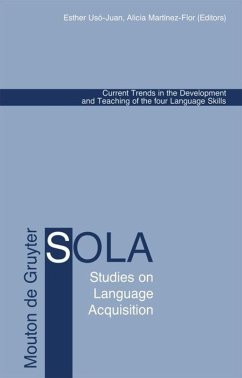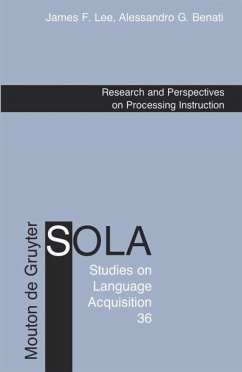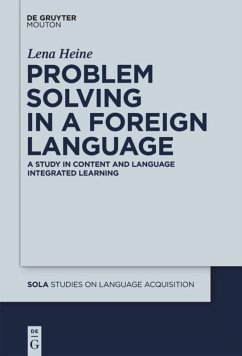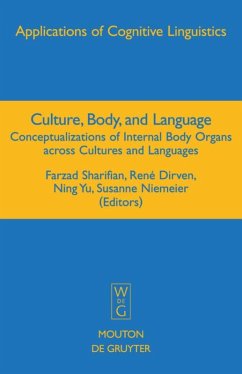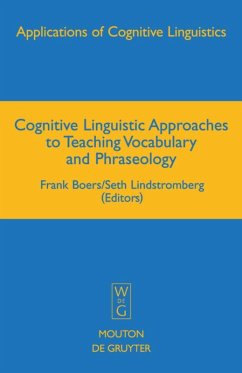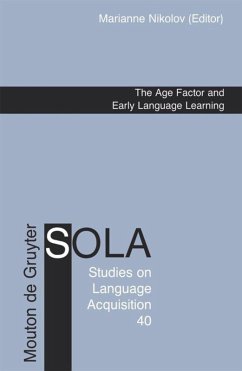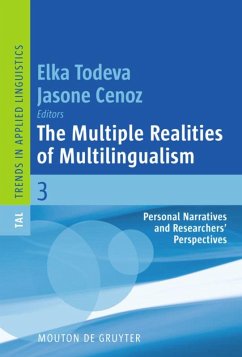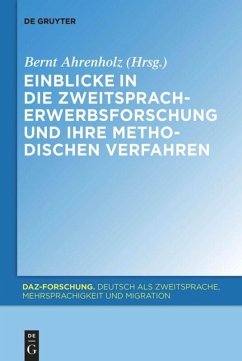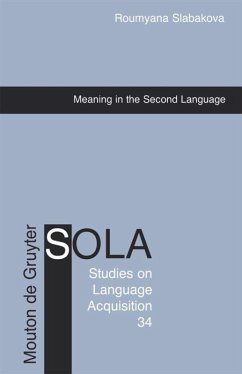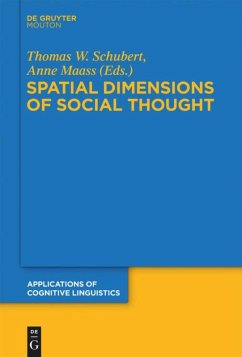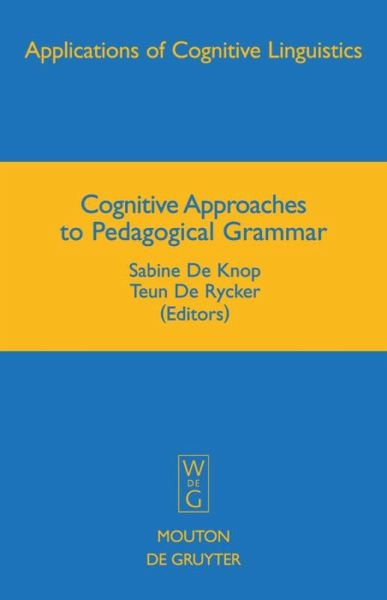
Cognitive Approaches to Pedagogical Grammar
A Volume in Honour of René Dirven
Herausgegeben: De Knop, Sabine; De Rycker, Teun
Versandkostenfrei!
Versandfertig in 1-2 Wochen
179,95 €
inkl. MwSt.

PAYBACK Punkte
0 °P sammeln!
In the last 25 years foreign language teaching has been able to increase its efficiency through an orientation towards authentic language materials, pragmatic language functions and interactive learning methods. However, so far foreign language teaching has lacked a sufficiently strong theoretical framework to support the teaching of language in all its aspects. Arguably, such a linguistic theory has to be usage-based and cognition-oriented. Since cognitive linguistics - and especially cognitive grammar - is concerned with conceptual issues against the larger background of human cognition and ...
In the last 25 years foreign language teaching has been able to increase its efficiency through an orientation towards authentic language materials, pragmatic language functions and interactive learning methods. However, so far foreign language teaching has lacked a sufficiently strong theoretical framework to support the teaching of language in all its aspects. Arguably, such a linguistic theory has to be usage-based and cognition-oriented. Since cognitive linguistics - and especially cognitive grammar - is concerned with conceptual issues against the larger background of human cognition and because it is based on actual language use, it becomes a powerful tool for dealing adequately with the main issues of a pedagogical grammar. A pedagogical grammar aims at providing all the essential linguistic patterns considered relevant by theoretical and descriptive linguistics for the preparation of teaching materials and their exploitation in foreign language instruction.
The volume contains thirteen contributions organized into three parts. In Part 1 Langacker, Taylor and Broccias introduce the basic grammar concepts, rules and models that are available in cognitive linguistics and which are directly relevant to the construction of a pedagogical grammar. Meunier, on the other hand, describes how such a grammar could benefit from corpus linguistics. Part 2 looks at some cognitive tools and conceptual errors with contributions by Danesi and Maldonado and also reconsiders contrastive analysis in the papers by Ruiz de Mendoza and Valenzuela & Rojo. Part 3, finally, discusses language-specific constraints on a number of linguistic phenomena such as the construal of motion events (papers by Cadierno and De Knop & Dirven), distinctions in the tense-aspect system (papers by Niemeier & Reif and Schmiedtová & Flecken), and voice (Chen & Oller).
The volume contains thirteen contributions organized into three parts. In Part 1 Langacker, Taylor and Broccias introduce the basic grammar concepts, rules and models that are available in cognitive linguistics and which are directly relevant to the construction of a pedagogical grammar. Meunier, on the other hand, describes how such a grammar could benefit from corpus linguistics. Part 2 looks at some cognitive tools and conceptual errors with contributions by Danesi and Maldonado and also reconsiders contrastive analysis in the papers by Ruiz de Mendoza and Valenzuela & Rojo. Part 3, finally, discusses language-specific constraints on a number of linguistic phenomena such as the construal of motion events (papers by Cadierno and De Knop & Dirven), distinctions in the tense-aspect system (papers by Niemeier & Reif and Schmiedtová & Flecken), and voice (Chen & Oller).





